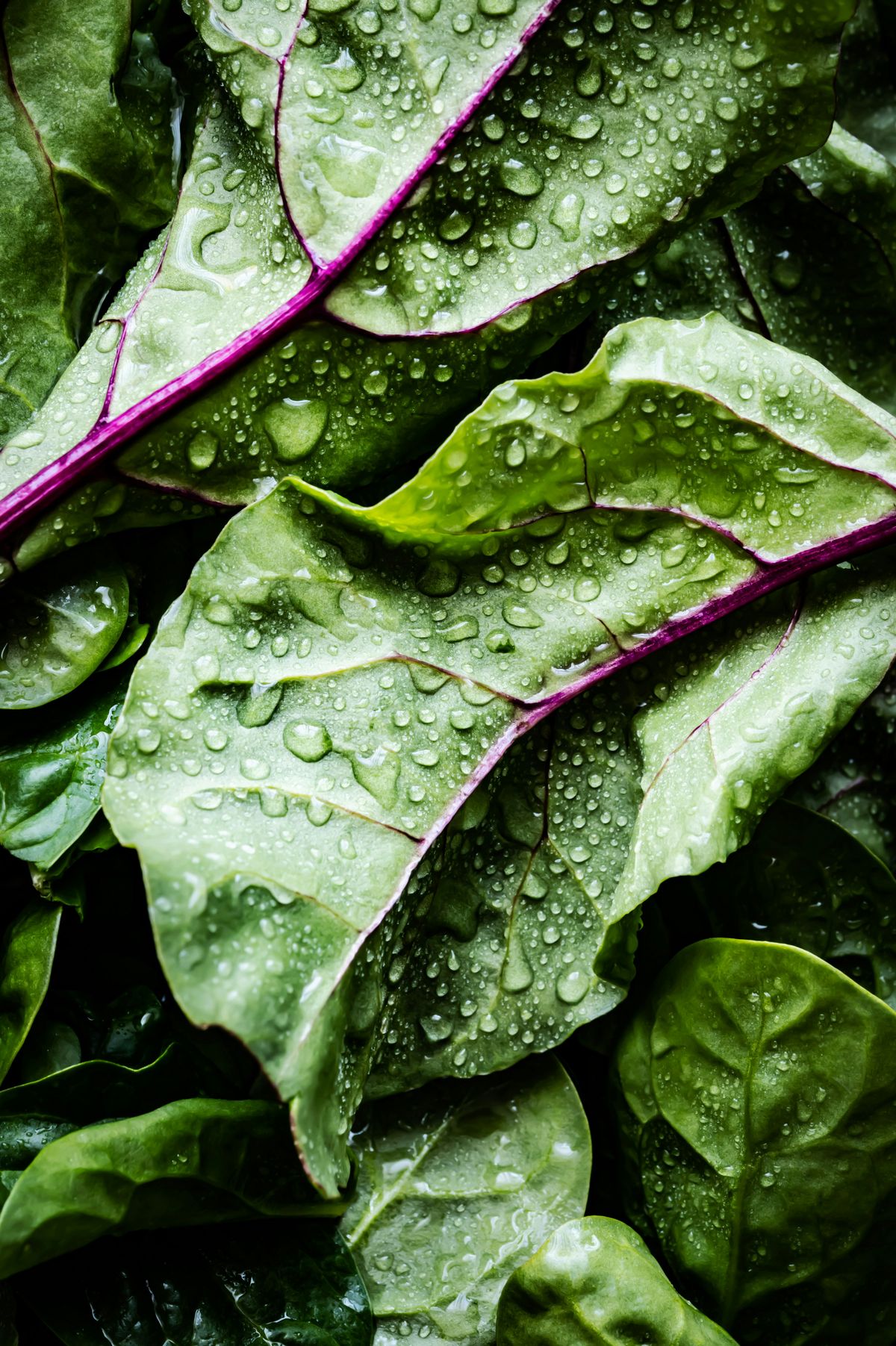
Recommended Article #12Apr24
Hi, Pet Parents Resources is a platform, where we share with you, what we research as pet parents ourselves. Here, we curate and give, what we hope would be, interesting to important informative articles, videos and even podcasts from our brand creators, experts, researchers, and more all over the world, to aid you in making better choices for your pets.
This recommended article ''Can Dogs Eat Spinach? '' is curated and sourced from Dogs Naturally Magazine. If you loved this article, please do feel free to share it around.
Can Dogs Eat Spinach?
Ever find yourself wondering if it’s okay to give your dog spinach? Then you’re in the right place!
We’ll walk you through the benefits of spinach for dogs, how to prepare it, and the dos and don’ts of including spinach in your pup’s diet. So, grab a spinach smoothie (just for yourself, for now) and let’s dig in.
Can Dogs Eat Spinach?
Yes, dogs can safely eat spinach in moderation. Packed with vitamins, minerals and antioxidants, spinach is a nutritious addition to your pup’s diet. Spinach is low in calories but high in insoluble fiber, which helps support your dog’s digestive system and overall health.
However, as with any new food, you’ll want to introduce spinach to your dog’s diet slowly. That way, you’ll let your dog’s digestive system adjust smoothly.
Speaking of moderation, the real question isn’t can dogs eat spinach, but more: how much spinach can dogs eat? Let’s take a look.
How Much Spinach For Dogs?
As a general rule of thumb, aim for about 10% of your dog’s daily food intake to come from fruits and veggies, including the mighty spinach. That said, every dog is unique, and spinach could disagree with some dogs’ digestive systems.
That’s why you don’t want to jump into a spinach feeding frenzy right away. Instead, start with small amounts and watch how your pup reacts. A few leaves of spinach chopped up and mixed into your pup’s regular meal is plenty for a great, healthy addition. Monitor his digestion and watch for any tummy troubles. If all goes well, you can gradually increase the portion size.
Is Spinach Good For Dogs?
Yes, spinach is good for dogs. In fact, it boasts a wide range of health benefits for our canine companions.
Here are a few reasons why incorporating spinach into your dog’s diet can be a great idea…
Benefits Of Spinach For Dogs
- Vitamin & Mineral Powerhouse: Spinach is rich in vitamins A, C, and K, as well as essential minerals like iron and calcium). These nutrients contribute to overall health, support the immune system, and help maintain strong bones and teeth.
- Antioxidant Boost: Spinach contains the powerful antioxidants lutein and zeaxanthin, which promote eye health and protect against the cellular damage caused by free radicals. Other antioxidants in spinach are quercetin (known as Nature’s Benadryl), nitrates (good for heart health) and kaempferol (which may reduce cancer risk).
- Fiber-Filled Fun: Spinach is an easy way to up your dog’s fiber intake. The fiber content in spinach can aid digestion and promote regular bowel movements, keeping your pup’s tummy happy and healthy.
- Hydration Hero: Spinach is high in water content, which can contribute to your dog’s overall hydration. It’s also what helps make to spinach so filling which can be an added bonus if your pup needs help maintaining or losing weight.
Spinach Cautions For Dogs
While spinach can be a beneficial addition to your dog’s diet, there are still a few important things to consider when feeding your dog spinach.
Here’s what you need to keep in mind:
- Pesticides and Herbicides: Spinach is always on the Environmental Working Group’s Dirty Dozen list, meaning it can carry a high pesticide/herbicide load. So always buy organic spinach if you can.
- Oxalates: Spinach also contains oxalates, which can interfere with calcium absorption and, in rare cases, contribute to the formation of bladder or kidney stones. If your dog has a history of urinary issues or is prone to such conditions, it’s best to consult with your holistic vet before feeding spinach.
- Seasonings: When preparing spinach for ourselves, we humans tend to season it. But for your dog, you’ll want to avoid adding cream sauce or spices. Some of these can be harmful to dogs, and it’s best to keep their spinach simple and free of extras. A little olive oil or pastured butter and fresh garlic are perfectly safe, though!
- Sensitivities: Just like humans, dogs can have individual food sensitivities or allergies. If you notice any gastrointestinal upset, itchiness, or changes in behavior after your dog eats spinach, stop feeding it.
- Goitrogenic: Spinach is a cruciferous veggie, so it can have goitrogenic effects that may lower your dog’s thyroid function. Veterinarian Jean Dodds DVM says that the benefits outweigh the risks, and if you lightly steam spinach, it minimizes goitrogenic activity. So if your dog is hypothyroid, cook his spinach … as well as other cruciferous veggies like cauliflower, cabbage, kale, Brussels sprouts or bok choy.
How To Prepare Spinach For Dogs
You know the risks and benefits of spinach for dogs and the proper portion guidelines by now. But what’s the best way to sneak this leafy green into your dog’s diet?
Here’s how to prepare spinach for dogs:
- Raw And Chopped: Fresh, raw spinach leaves can be chopped into small, manageable pieces and added as a crunchy topping to your dog’s regular meal. This method preserves the maximum nutrients found in spinach. You can also purée or mulch raw spinach for easier digestibility
- Steamed Or Blanched: Lightly steaming or blanching spinach can make it easier for your dog to digest while retaining a good portion of its nutritional value. Simply steam the spinach until it wilts, then chop it into smaller pieces before serving.
- Spinach Treats: If you’re feeling adventurous in the kitchen, you can bake homemade spinach treats for your pup. There are plenty of dog-friendly recipes available that incorporate spinach as a healthy ingredient.
You can also opt for frozen spinach as a convenient alternative. Just make sure to thaw it and strain off excess moisture before offering it to your pup.
Remember, dogs have different taste preferences, so don’t be discouraged if your canine companion turns his snout up at spinach. You can try different ways of serving it – cooked, raw, or even mixed with his favorite treats or food.
So get creative … but also, don’t worry if your dog just doesn’t like spinach, because there are plenty of other great vegetables for dogs.
You may find more interesting reads from JOOF Holistic Pet today! Look out for loads of information on our product pages, social media, especially our Pet Parent Resources page.
JOOF Holistic Pet, a Singapore online pet store that focuses on the holistic well-being of your beloved furkid. Our recommended products aim to support and improve health, emotional and physical well-being, and help your pet have a better quality of life without compromise. Look out for Essential, Trendy and Premium quality pet products that are specially curated, with the pet parents concerns' as a priority.
This blog first appeared on the Dogs Naturally Magazine website, where the article "Acid Reflux in Dogs: Symptoms & Management" was curated and sourced from.
Original source: Can Dogs Eat Spinach?
Thank you for reading! We hope to bring you more informative and exciting articles from other resources and our varying retail brands. Through them, we hope more and more pet parents could become their pet's wellness heroes, proactively taking control of their pets’ foundational health from within, with JOOF Holistic Pet - www.joofholisticpet.sg 😊
Disclaimer:
JOOF Holistic Pet has curated and reproduced this article in good faith, which may contain an element of consumer opinion, but cannot be held responsible for any information inaccuracies in it or any use assumed from this information by the reader. JOOF Holistic Pet welcomes positive recommendations for holistic healthcare products, but does not necessarily endorse the author’s opinion. We acknowledge each animal is an individual and may react differently to the highlighted product/s, and that there may also be other similar effective products available.
General recommendations made by JOOF Holistic Pet are solely for informational and educational purposes, and are not a substitute for the appropriate veterinary care. It is important to always consult professional help if you have concerns about your furkid’s health.
